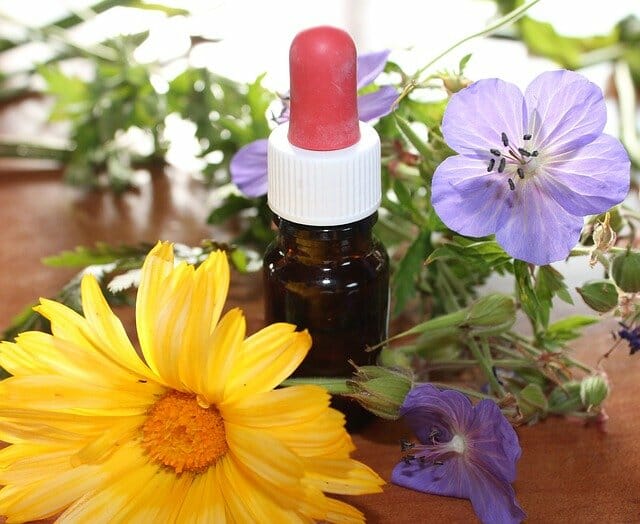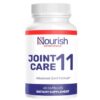Striking A Balance Between Natural And Pharmaceutical Treatments For Optimum Health
In recent years the pharmaceutical industry has come under fire for increasing drug prices and its role in the ongoing opioid epidemic. The negative press has resulted in a massive influx of people turning to natural or herbal remedies. But, which approach is the right one?
While they certainly have their shortcomings, modern medicine and prescription medication have garnered seemingly impossible results. On the other hand, some herbal remedies have a proven track record that spans centuries. For optimum health, it’s important to strike a balance between natural and pharmaceutical treatments.
However, choosing the right remedy for you isn’t always simple. To make an informed decision, you must first understand the difference between natural treatments and prescription medication. You also need to know how to identify situations that require professional medical attention and when it’s safe to move forward with your own herbal remedies. There is a time and place for both, but to maintain proper health, you need to learn what those circumstances are.
Differences Between Natural and Pharmaceutical Treatments
Both natural and pharmaceutical treatments have pros and cons. Examining the pros and cons as well as understanding the differences between natural and pharmaceutical treatments are the first step toward choosing the right remedy for you.
To start, pharmaceuticals are highly studied and go through a rigorous testing process. In the United States, before new medications are made available to the general public, the Food and Drug Administration must approve them. Other countries have their own oversight methods to ensure quality and safety.
Pharmaceutical treatments frequently work well, but they can create debilitating dependencies as evidenced by the ongoing opioid crisis. Furthermore, prescription medication is often expensive and difficult to afford even with health insurance.
Diversely, you have natural treatments which include herbal remedies that use plants as medicine. As with pharmaceutical treatments, people use herbal remedies to help prevent or cure disease, address various symptoms, boost energy, relax, and lose weight. Many people embrace natural treatments as a way to simplify their lives and be more self-sufficient.
However, unlike prescription medicines, natural treatments are not regulated or tested. Generally, they’re more affordable than their pharmaceutical counterparts and can be obtained without a doctor’s permission.

When To Choose What Remedy
For the most part, natural treatments and herbal remedies are fine to use as long as they don’t interfere with your well-being. Since these types of treatments may require some trial and error, you should be sure to research and experiment to see what works for you. In most cases, it’s safe to administer natural treatments in the beginning stages of an illness. If your health doesn’t improve, you should then consult a doctor.
One example of a condition that you might first treat with natural remedies is GERD. If you’re experiencing acid reflux, natural remedies you can try include chamomile, liquorice, aloe vera juice, bananas, peppermint, and even chewing gum. However, if a natural approach doesn’t suffice, you can talk to your doctor about prescription medications like antacids, H2RAs, and PPIs that will help alleviate your symptoms.
You can utilize natural treatments to alleviate the symptoms of perimenopause. If you aren’t interested in prescribed medications, another option is utilizing essential oils. Peppermint, lavender, and geranium are just a few of the essential oils that have been found to provide relief.
While you might find success with some natural treatments, for the most part, home remedies aren’t as potent as prescribed medications. If you have a serious health concern, you should make an appointment to speak with your physician since they have the knowledge and resources to pinpoint your specific problem and can recommend a powerful course of treatment.
For example, some people attempt to treat dental concerns with natural remedies, but if it’s a dental emergency such as a chipped tooth or an abscess, you need to see a dentist. Of course, as with natural treatments, you should research pharmaceutical treatments and weigh the potential side effects.

Important Factors To Consider
Hopefully, you’re starting to see a pattern emerge: Before embarking on any course of treatment—whether it be natural or pharmaceutical—do your research. Between doing your own reading and talking to your doctor (as well as seeking a second opinion when necessary), you can strike a healthy balance between natural and pharmaceutical remedies. Honest and open communication with a trusted medical professional is crucial to knowing when which type of treatment is appropriate.
Additionally, be careful not to fall into the trap of thinking that natural remedies are safer. Some people believe that natural medicines are free of chemicals, but many toxic chemicals occur in nature. Mercury, snake venom, arsenic, and ricin from castor beans are all-natural, but you wouldn’t want to ingest them. Even some prescription drugs come from natural sources.
When you’re doing your research, keep in mind that a herbal supplement could contain dozens of chemical compounds, and since natural treatments aren’t regulated in the same way pharmaceutical ones are, all of its ingredients may not be known.
It’s certainly possible to strike a balance between natural and pharmaceutical treatments, but you must approach choosing the right remedy for you with an inquisitive mind. Just because a treatment worked for someone else doesn’t mean it will work for you. Finding the right balance will require some experimentation, but in serious situations, be sure to consult a doctor. When it comes to maintaining your health, there’s a place for both natural and pharmaceutical treatments.















